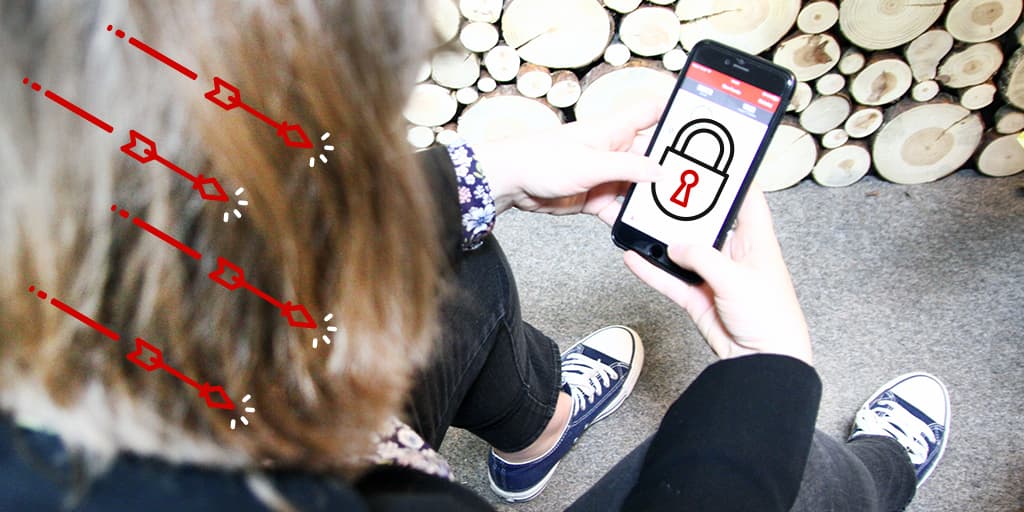Personal data is considered the new currency of the digital economy. The prevalence of cyberattacks and the scale of terrorism make us worry about our privacy and data security. Interestingly, many people support actions aimed at improving security levels, even if it involves online surveillance. Therefore, we decided to ask for your opinion. Would you be willing to sacrifice your data in the name of security, or do you prefer to maintain full privacy at the cost of greater risk? We present the survey results.
The conclusions we have drawn cannot be treated as the sole version of truth – the survey was intended to ask a small portion of our users about their views on personal data security. Due to its size and sample selection, it cannot replace professional research. Nevertheless, its results provide a good starting point for considerations on the topic of data sharing. Here's what we managed to find out.
Why do we share our personal data?
There are many reasons why we share our data. The one that appeared most frequently among your answers was the fact that it makes life easier through service personalization. Nearly 65% of respondents indicated this reason. What are we talking about? Remember the last time you shopped in an online store. We can bet that after clicking on a few items you liked, the site started suggesting products you might also like. This strategy has been embraced by most marketers – by accurately understanding user interests, needs, and activity, a company can approach the customer with a perfectly tailored offer that increases the chances of a sale. Data is collected here in two ways. The first is initiated by the customer themselves, who registers on the site, signs up for a newsletter, or simply creates an account needed to complete an order. During these activities, they provide a lot of information, such as name and surname or address, which are saved on the site. The next step is observing consumer behavior. Thanks to cookies, a preference template is created, allowing for the outlining of an ideal shopping path. Is this safe? It happens that cookies collect not only information about our activity on the site but also logins and passwords, which can fall victim to hackers. In most cases, however, this type of data is specially secured.
Returning to our survey – let's look at the other reasons for sharing personal data. Exactly half of the respondents indicated that they decide to share their data to increase the security of services. There were also individual voices mentioning giving away data for statistics, terms and conditions, and obtaining benefits. Interestingly, some Vikings responded that they share their data "because they have to," "they have no choice, or at least they think so," and because "it's required on websites and portals."
In today's reality, do we really have no control over who processes our data and how?
Unfortunately, history has repeatedly proven that we cannot feel completely safe. We are talking about two massive data leaks that happened not so long ago, even this year. The first concerned mobile network customers, whose data, as detected by one of the operators, was being sold by call center employees to a competing company. It turns out that such incidents are not uncommon – according to statements from employees of various networks, it often happens that a dismissed employee takes the client base to a new employer or tries to sell it online. Fortunately, such situations are impossible at Mobile Vikings – we have never shared and will never share user information. Security is our top priority, so you can sleep soundly – your data is in good hands.
Another major leak occurred in the so-called Darknet, where a user on a Polish forum put up for sale the data of clients of four banks: ING Bank Śląski, mBank, Idea Bank, and Credit Agricole. This included account numbers, balances, PESEL numbers, addresses, and phone numbers. Some may be surprised by the fact that the trading of personal data is generally legal. However, the matter is strictly regulated by law. If, as in the case of former telecommunications network employees, a database is taken from one company and shared with another, it is a violation of the law. However, sharing data is legal if the client gives consent, which they often mechanically tick when signing a service agreement. For this reason, it is worth carefully reading the terms and conditions written in small print. This will help us avoid, for example, having to talk to companies we don't recognize at all, which call us eager to present their offers.
To whom and what data do we most willingly share?
The survey results clearly show what data we transfer most often. This is personal information, i.e., name, surname, and address (over half of the responses). We also willingly share information about our location (27%), online activity (6%), and email inbox statistics (3%). At this point, many of you will surely start pondering what lies behind the term "sharing online activity." This refers to information collected by browsers – in this case, especially passwords we type into search engines and the history of visited websites. By analyzing the content we view, the search engine can, for example, adjust the order of search results. In other words, pages tailored to our requirements will appear at the top of the list.
When asked to whom they would be willing to give their personal data, respondents most often answered the police (88% of people) or other security services (50%). Further down the line were telecommunication operators and other service providers (38%), social networks (11%), and search engine providers (6%). It is interesting that the two least indicated options are actually the ones that collect our data most often. What's more, we agree to it ourselves – whether by registering on social networking sites or using popular search engines.
To how many entities do we share our data?
It is difficult to definitively determine who possesses our data. This is due not only to the fact that information changes hands but also because we often automatically sign up for another loyalty card or agree to receive messages about current promotions, thus giving our personal data to another entity. However, surveyed Vikings attempted to estimate the number of companies they have authorized to process their data. 58% of respondents stated that it is between one and five entities, and 35% said between 6 and 10. 4% of respondents declared that it is most likely between 11 and 15 companies. A small number of Vikings indicated that their data is stored by 16 to 20 entities. Is this little or a lot? It's hard to say definitively. Each of us has different needs, and therefore, it's impossible to set a single, correct number of entities to whom we should share data. One thing we know – demonizing this phenomenon makes no sense.
We live in times when personal data collection is widespread. Like almost everything in this world, it can be helpful or turn against us. We operate on the principle of better safe than sorry. Be careful and pay attention to whom you share your data. One thing you can be sure of – nothing will happen to you with us. 🙂
—
The study involved 63 people, 57 Vikings and 6 Viqueens, aged 16 to 73. Respondents answered four short questions designed to check when and under what circumstances they are willing to give away their personal data.











